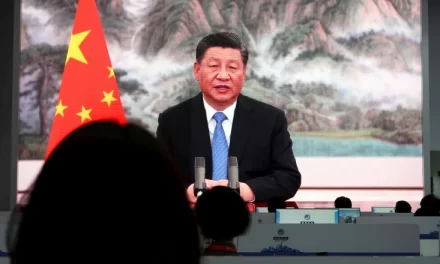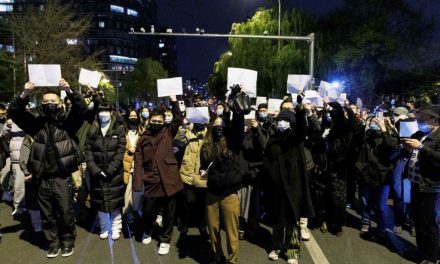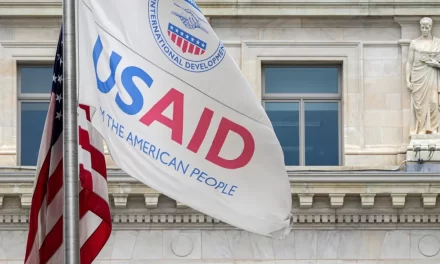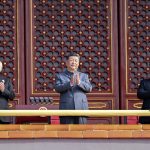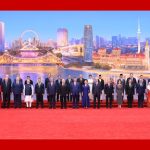By Evan Osborne
Recent weeks have revealed problems in the Chinese health-care system, or more accurately in what the Chinese people have learned about these problems. While The New York Times has a paywalled report on the events (Chinese-language version freely available), it does not investigate thoroughly the extent to which the events may reflect the implications of China’s growing economic crisis, and in fact the story was filed as a business story. And in fact some of the most interesting questions were not raised.
The furor broke out when hospital-affiliated doctors in Shanghai in December, 2024 released a statement requesting that government health authorities permit doctors in some circumstances to treat patients with drugs not on the government’s list of authorized medicines. The public hospitals used by most Chinese have a list of usually generic medicines made in China that they are permitted to use. Doctors began to complain among themselves that, in the words of the Times, anesthesia did not put patients to sleep, laxatives were ineffective, and antihypertensives did not actually lower blood pressure. It is increasingly believed that the fierce competition among Chinese drug companies to get on the list has led to cutting corners, at the cost of significantly diminished effectiveness. The authorization in question is not the approval of a drug’s safety and efficacy, which had already occurred. Rather, the medicines on the government’s list are there because because they cost the authorities less than other drugs, often created in Western countries and still under patent.
In 2018 the Chinese government, with an economy already becoming more and more dependent on housing construction as a source of economic vitality even as that market itself was within a few years of falling apart, encouraged domestic drug companies to compete to be on the government’s new procurement list. The goal was to lower prices and hence government health-care expenditures. By 2024, it had become apparent that brand-name foreign drugs, often still under patent, had mostly become unavoidable on the list of medicines available via public facilities. (In China, some private hospitals exist, although most Chinese do not use them.) A primary reason was that the Western companies producing these medicines could not compete with the cutthroat prices offered by Chinese drug companies.
Doctors in China, like most there, are reluctant if not outright unwilling to rock the boat, to court risk by criticizing public policy when it might call the ruling authorities into the slightest disrepute. That these criticisms were raised suggests how frustrated as medical professionals they must be over the consequences of the above chain of events. Coming out of the Chinese COVID lockdowns that were without parallel other than in North Korea, Chinese have occasionally and boldly protested limitations on the health care available to them, for example the medicines that can be used or what people must pay, by the month or for specific goods and services, in the health-care system.
It is not surprising that the CCP would seek to cut costs in the face of financial problems, and it must be true that the acceleration post-COVID of economic collapse has worsened these financial strictures. But that medical personnel take the risk of speaking publicly suggests how serious the problem must be. Every one of the doctors who put his or her name to that document was surely aware or what happened to Dr. Li Wenliang, who was part of a small group of physicians in Wuhan who, presumably merely out of a desire to do what was right, had an online discussion among themselves in late 2019 about a serious and unrecognized pneumonia that they had all recently encountered. Dr. Li was one of that doctors who participated in this discussion on WeChat, and the group thought the new disease resembled SARS. Alas, China being a place with no private conversations, the authorities cracked down on him and other chat-group members, forcing him at least to walk the Maoist walk (The Economist, paywalled) and write a self-criticism. (Dr. Li, who had been treating others with the disease in a Chinese hospital, soon died of COVID himself.)
For the Shanghai physicians to risk such consequences and speak up anyway likely attests to the severity of the current situation. Like most countries, communist or not, the government of the People’s Republic of China pledges to provide adequate health care to its people. But in China, the government’s very claim to legitimacy rests on such pledges, along with achieving universal literacy, adequate food for all and other things done to justify its total control of the population. So whether the government is actually providing these things is not nearly as important as that it be seen as providing them. If one takes, as perhaps one should, a purely utilitarian-political view of the CCP — it does things to preserve its monopoly on power and the graft opportunities such power still brings, a view that is particularly manifest in Xi Jinping himself — then one could argue that health care is not at the apex of the list of things the CCP must insure function well. And other problems are constantly emerging there. An anonymized Chinese physician recently told a popular Chinese-language podcast (Chinese) based outside China that risky unnecessary surgery and overdiagnosis, done for budgetary reasons, are now on the rise.
If one views the CCP as motivated first by a desire to preserve its power and the wealth that flows from it, what will be prioritized will be public services that keep the economy at least staggering along. This will continue the machine that allows high officials to skim off the top. Medical care is then not a priority. One could think of services like electricity and transportation that help make the economy run as having higher priority in government spending than health care, which the CCP might still wish to fund to some degree to restrain popular dissatisfaction. But even so, in addition to evident ruptures in health care. there are anecdotal reports of budgetary problems in the Chinese rail system, and Chinese cities in the last year have seen higher utility prices. Admittedly, even with regard to medicines it is not all bad news. New Chinese biotechnology medicines, although significantly driven for now by research following up on what occurs in the West, have been impressively assessed by The Economist (paywall). But such advances are presumably cultivated by the government, they make the CCP look good, and the resultant licensing deals bring in foreign exchange. Thera is no sign yet that such advances have eased the stresses on Chinese health care and its costs.
Overall, combining the desire of the CCP to cover things up that do not reflect well on it, and the likely incentives for the regime to control health costs, it is probable that the actual health-care situation, and soon enough the Chinese people’s health, especially for the retired elderly who are seen as disposable, could well be worse than is known. It is striking that when the CCP introduced their domestically produced vaccines for COVID-19, months before the mRNA vaccines were introduced, after accelerated but genuine testing for safety and efficacy, in Western countries, the priority was different. In the U.S. the elderly, along with health-care employees and those having other health problems known to weaken the immune system, were the first to be able to receive the newly approved vaccines. In China in contrast, working-age young were prioritized, and the elderly had to wait, suggestive of what really matters to the CCP.
The increasing difficulties in the Chinese health-care system suggest a regime in significant trouble. As one would expect in a thoroughly debased regime, it is widely thought that well-connected CCP elites still get, as needed, brand-name Western medicines. But the financial problems, and concomitant willingness to sacrifice the health of Chinese, especially older Chinese, on the altar of stability may well be a sign of worse problems ahead. What this means for other nations, including the United States, is not certain. The most straightforward prediction is that as long as Xi Jinping’s ideology (with or without him actually at the helm) prevails. China will continue to decline, and soon enough sacrifice military buildup to hang on to power. But it is also possible that, facing crisis, the CCP will lash out militarily. Its recent practice, after decades of relative international quiescence, of aggressive poaching on the territory of The Philippines, conflicts over ocean resources and land with Vietnam and other nearby nations, and its spurning of centuries of well-developed world diplomatic convention with its public “wolf-warrior” diplomacy are all suggestive in this regard. (The return of the unsubtle Donald Trump to the presidency has worsened this phenomenon.) The more the Chinese people can be made to feel that not the Party but the Chinese nation is being treated unfairly, its peaceful rise blocked by resentful, declining powers, the safer the CCP will be, and aggressive military action would certainly enable that.
The information that has leaked out about the decaying health-care system, and hints of other public-infrastructure problems, suggest that the fiscal position of the Chinese government is now seriously deteriorating. The most urgent task the CCP (not China itself, note), haunted by both the nationwide student-led protest movement in 1989 and the collapse of the Soviet Union, faces during this time of multiple crises is to prevent discontent from mushrooming into large-scale protests across the country. Things such as the “lying down” movement (in which many young people, are said to have become completely disenchanted by the idea of marrying and raising future Chinese, and of working hard to propel the Chinese nation forward), economic dysfunction and so on can be tolerated as long as they do not metastasize into a direct threat to the CCP’s hold on power, and the wealth its leaders accrue from that hold. But that, by any means necessary, things must be prevented from deteriorating to that point also indicates ordinary people in China, powerless in their increasingly draconian surveillance state, will be increasingly squeezed between the rock of declining public services and the hard place of having no capacity to do anything about it.
Evan Osborne, Ph.D., is a professor of economics at Wright State University and the author of “Reasonably Simple Economics: Why the World Works the Way it Does” and “The Rise of the Anti-Corporate Movement: Corporations and the People Who Hate Them.”


